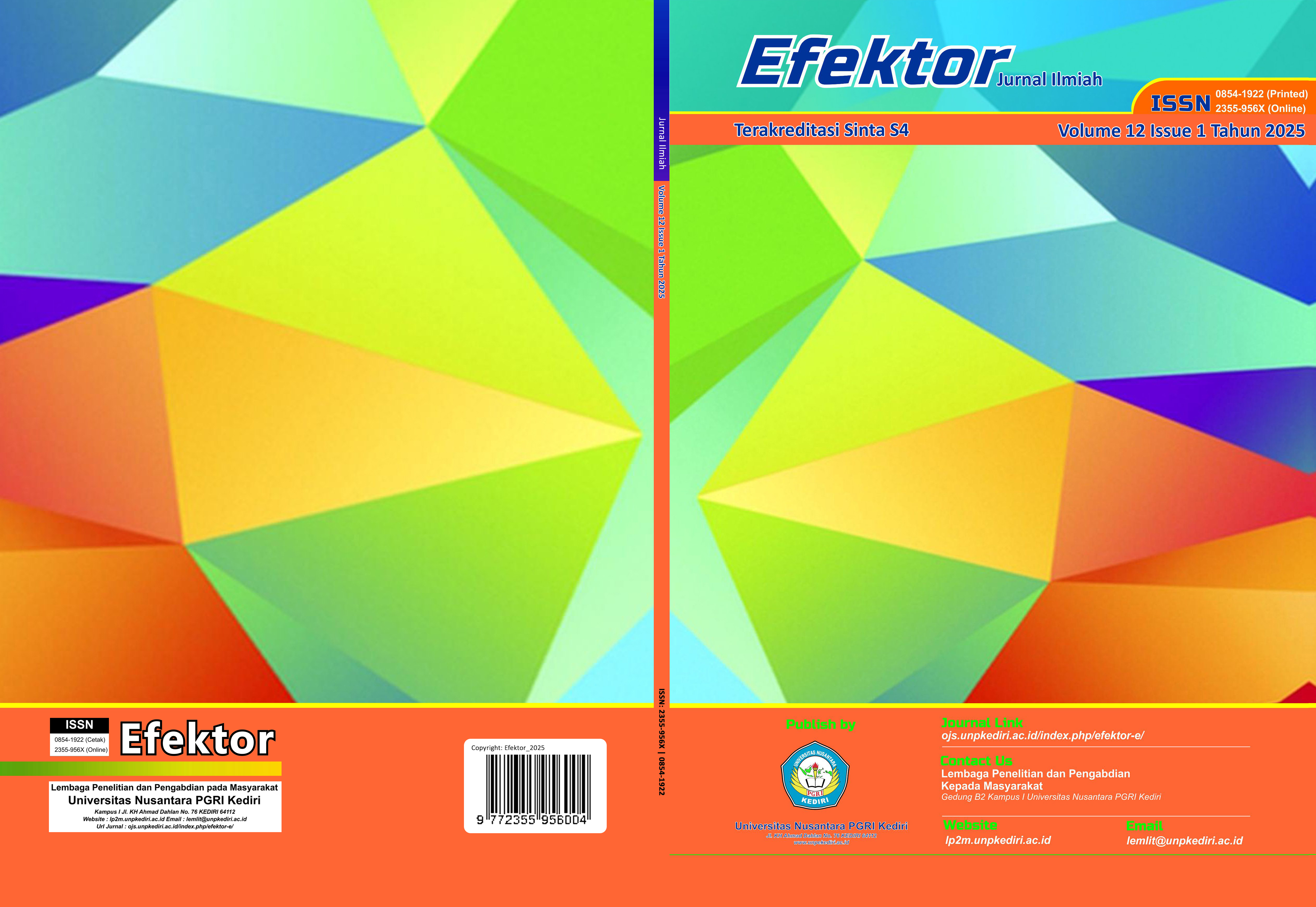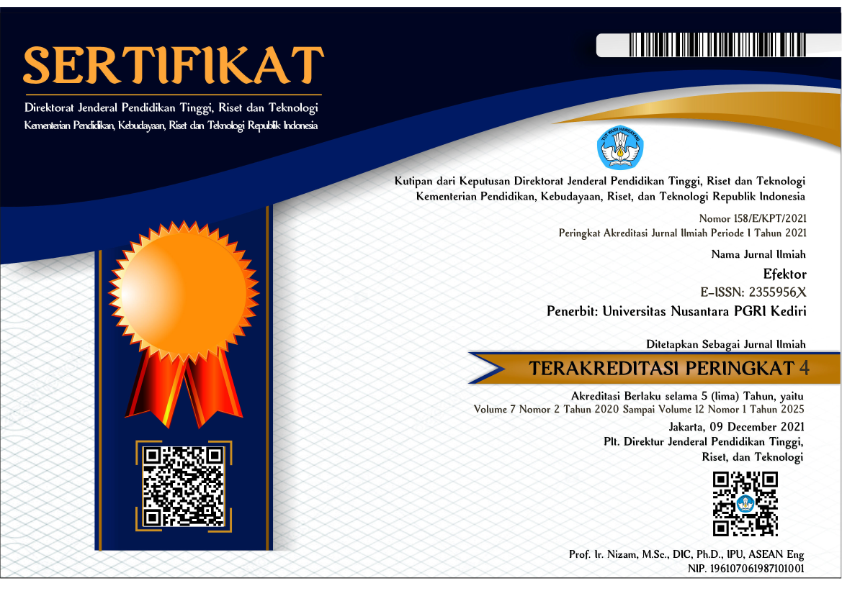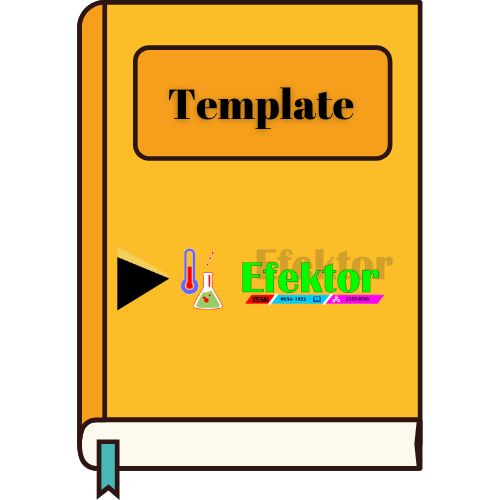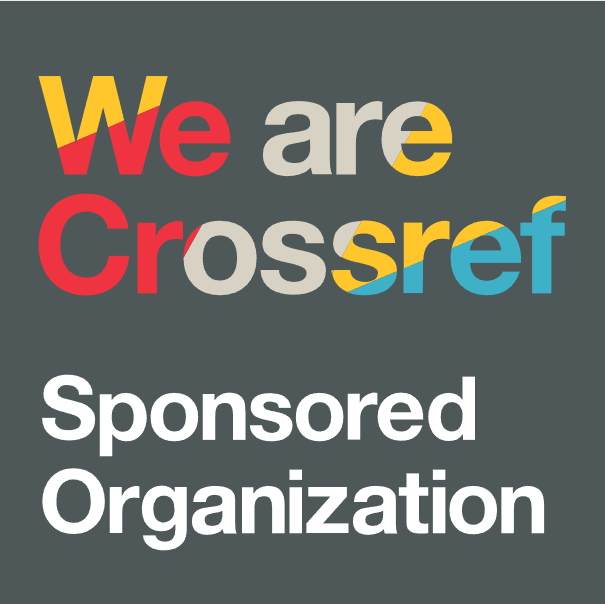Implementation of the Role‑Playing Model in Indonesian Language Learning and Its Impact on Communication Skills
DOI:
https://doi.org/10.29407/e.v12i1.24828Keywords:
communication skills, Indonesian language learning, learning model, student participation, role playingAbstract
This study aims to analyze the implementation of Role Playing learning model in Indonesian language learning and its effect on communication skills of SMAN 6 Kediri students. This research used quantitative approach with quasi-experimental design. The research sample consisted of two classes, namely the experimental class which was given learning using the Role Playing model and the control class which used the Problem Based Learning method. Data collection technique was conducted through speaking skill test, observation of students' participation, and questionnaire of perception towards learning method. The data analysis technique used t-test (independent sample t-test) to measure the difference in communication skills results between the two groups as well as descriptive analysis to see students' responses to the learning model. The results showed that students who learned with the Role Playing model experienced a significant improvement in communication skills compared to the control group. This improvement can be seen from the aspects of fluency in speaking, accuracy in conveying ideas, courage in arguing, and more active interaction in class. In addition, students also showed a more enthusiastic attitude and positive response to learning with the Role Playing model. These findings indicate that the Role Playing model can be an effective strategy in learning Indonesian, especially in improving students' speaking skills and social interaction. Therefore, this model is recommended to be applied in language learning to create a more dynamic and interactive learning atmosphere.
References
Azizah, N. (2022). Penerapan metode role playing untuk meningkatkan keterampilan berbicara dan motivasi belajar siswa dalam menguasai congratulations expressions. Educatif: Journal of Education Research, 4(103), 121–131. https://doi.org/10.67109/ptk.vi0.198532
Creswell, J. W. (2023). Research design: Qualitative, quantitative, and mixed methods approaches (6th ed.). Thousand Oaks, CA: Sage.
Field, A. (2022). Discovering statistics using IBM SPSS statistics (5th ed.). Sage Publication.
Fraenkel, J. R., Wallen, N. E., & Hyun, H. H. (2021). How to design and evaluate research in education (10th ed.). McGraw-Hill.
Gall, M. D., Gall, J. P., & Borg, W. R. (2022). Educational research: An introduction (9th ed.). Pearson.
Hake, R. R. (2021). Analyzing Change/Gain Scores in Educational Research. Journal of Science Education, 15(2), 89–102.
Huda, K. (2015). Peningkatan keterampilan berbicara bahasa Inggris melalui metode role playing. Didaktikum: Jurnal Penelitian Tindakan Kelas, 16(3), 17–22. https://doi.org/10.1036/c.hj.2015.123.008
Istiqomah, L., Murtono, & Fakhriyah, F. (2020). Peningkatan keterampilan berbicara siswa melalui model role playing berbantuan media visual di sekolah dasar. Naturalistic: Penelitian Dan Pendidikan Dan Pembelajaran, 5(1), 650–660.
Lailiyah, N., & Wulansari, W. (2017). Peningkatan keterampilan berbicara melalui metode diskusi kelompok model tanam paksa siswa kelas x pemasaran 1 SMK PGRI 2 Kediri. Jurnal Pendidikan (Teori Dan Praktik), 1(2), 166. https://doi.org/10.26740/jp.v1n2.p166-173
Lubis, C., & Nasution, S. (2024). Pengaruh metode role playing terhadap peningkatkan keterampilan berbicara siswa pada mata pelajaran bahasa Indonesia kelas v di Madrasah Ibtidaiyah. Didaktika: Jurnal Kependidikan, 13(2), 2017–2028. https://doi.org/10.1219/94765/fi.34.91111
Mabruri, Z. K., & Aristya, F. (2017). Pembelajaran bahasa Indonesia kelas iv melalui penerapan strategi role playing SD Negeri Ploso 1 Pacitan. Naturalistic: Jurnal Kajian Penelitan Pendidikan Dan Pembelajaran, 1(2), 112–117. https://doi.org/10.1184/31760811.2017.1630341
Merriam, S. B., & Tisdell, E. J. (2021). Qualitative research: A guide to design and implementation (5th ed.). Jossey-Bass.
Miles, M. B., Huberman, A. M., & Saldaña, J. (2020). Qualitative data analysis: A methods sourcebook (4th ed.). Thousand Oaks, CA: Sage. https://doi.org/10.1016/S0272-4944(05)80231-2
OECD. (2022). PISA 2022 results: Learning and equity in education.
Pitoyo, A., & Lailiyah, N. (2024). Flipped classroom model for teaching Bahasa Indonesia in higher education. Journal of Educational Management and Instruction, 4(2), 334–347. https://doi.org/10.22515/jemin.v4i2.9450
Priatna, A., & Setyarini, G. (2019). Pengaruh model pembelajaran role playing terhadap keterampilan berbicara siswa kelas iv SD pada pembelajaran bahasa Indonesia. Pendas: Jurnal Ilmiah Pendidikan Dasar, IV, 147–159. https://doi.org/10.1018/t.kh.2019.02.037
Rahmah, M. F., & Nasution, S. (2024). Pengaruh model role playing terhadap kemampuan komunikasi peserta didik di sekolah dasar. Else (Elementary School Education Journal), 8(3), 32–40. https://doi.org/10.1078/33222-3674.78.3.815
Rahman, A. (2022). Efektivitas model role playing dalam meningkatkan keterampilan berbicara siswa sekolah dasar. Jurnal Pendidikan Bahasa Dan Sastra, 12(1), 45–58.
Rahmayantis, M. D., & Lailiyah, N. (2021). Pembelajaran menulis puisi dengan menggunakan teknik pemodelan. Mardibasa: Jurnal Pembelajaran Bahasa Dan Sastra Indonesia, 01(1), 47–76. https://doi.org/10.21274/jpbsi.2021.1.1.47-76
Raza, S. A., Naqvi, S. A. A., & Lodhi, R. N. (2020). The role of universities in human resource development. Pakistan Journal of Commerce and Social Sciences, 14(1), 395–415.
Santosa, R. (2021). Dasar-dasar metode penelitian kualitatif kebahasaan (D. Purnanto, Ed.; Revisi). UNS Press.
Sari, R., & Nugroho, T. (2023). Penerapan model role playing untuk meningkatkan keterampilan berbicara dalam pembelajaran bahasa Indonesia di SMP. Jurnal Inovasi Pendidikan, 15(1), 78–92.
Sari, R. K. (2020). Efektivitas penggunaan model pembelajaran role playing terhadap keterampilan berbicara pada bahasa Indonesia tingkat SD research. Jurnal Pendidikan Dan Konseling, 2. https://doi.org/10.1155/002205741319300303
Sugiyono. (2022). Metode penelitian dan pengembangan (research and development/R&D) (Cetakan ke). Alfabeta.
Suyanto, A. (2021). Strategi pembelajaran bahasa Indonesia berbasis kompetensi komunikatif. Deepublish Publisher.
Trilling, B., & Fadel, C. (2021). 21st Century skills: Learning for life in our times. Jossey-Bass.
Twenge, J. M. (2017). iGen: Why today’s super-connected kids are growing up less rebellious, more tolerant, less happy—and completely unprepared for adulthood. Atria Books.
Wahyuni, D. (2021). Peran model role playing dalam meningkatkan interaksi dan kepercayaan diri siswa dalam pembelajaran bahasa Indonesia. Jurnal Ilmu Pendidikan, 9(1), 34–47.
Downloads
Published
Versions
- 2025-04-22 (3)
- 2025-04-22 (2)
- 2025-04-22 (1)
Issue
Section
License
Copyright (c) 2025 Nur Lailiyah, Yolanda Rensia Gigik, Avrillya Ainisya, Salma Kurnia Anisa, Mutiara Etikasari

This work is licensed under a Creative Commons Attribution-ShareAlike 4.0 International License.
Authors who publish with this journal agree to the following terms:
- Copyright on any article is retained by the author(s).
- The author grants the journal, the right of first publication with the work simultaneously licensed under a Creative Commons Attribution License that allows others to share the work with an acknowledgment of the work’s authorship and initial publication in this journal.
- Authors are able to enter into separate, additional contractual arrangements for the non-exclusive distribution of the journal’s published version of the work (e.g., post it to an institutional repository or publish it in a book), with an acknowledgment of its initial publication in this journal.
- Authors are permitted and encouraged to post their work online (e.g., in institutional repositories or on their website) prior to and during the submission process, as it can lead to productive exchanges, as well as earlier and greater citation of published work.
- The article and any associated published material is distributed under the Creative Commons Attribution-ShareAlike 4.0 International License













